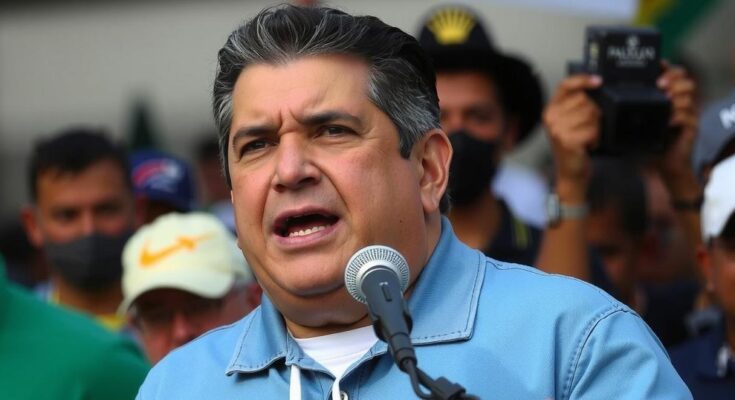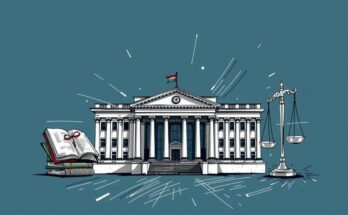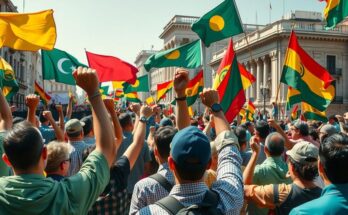Venezuelan President Nicolás Maduro has announced the release of over 100 protesters amid criticism of his administration following contentious elections. This follows 225 conditional releases last month and comes as part of efforts to manage domestic and international pressures surrounding human rights violations. Concerns continue to grow over the treatment of detainees and missing persons in Venezuela, underscoring the urgency for accountability.
In a bid to alleviate mounting pressure following a contested election, Venezuelan President Nicolás Maduro has pledged to release over 100 protesters who were detained amidst a legitimacy crisis for his regime. This recent decision follows the conditional release of an additional 225 individuals announced last month. Since the presidential elections, which involved a peak of over 2,000 arrests, this is seen as a measure to assuage domestic and international criticism.
The Vice Presidency of Citizen Security and Peace reported that 103 individuals were released recently; however, human rights organizations have only been able to verify 25 of these releases. Among those freed are at least 19 teenagers from a larger group arrested during protests on July 29 and 30, where citizens protested against alleged electoral fraud. The authorities accuse many detainees of committing terrorist crimes, stemming from raids during which political content was found on their electronic devices or following reports from neighbors.
Maduro’s government is seeking to mitigate dissent ahead of an inauguration scheduled less than a month away, an event that could lead to renewed disapproval from the international community. The regime continues to face allegations of human rights violations, including arbitrary detentions and instances of sexual violence, as scrutiny from entities such as the International Criminal Court intensifies.
Moreover, amid these releases, ongoing cases of missing persons have drawn significant concern. Human Rights Watch has called for clarification regarding the whereabouts of Spanish-Venezuelan citizen Sofía María Sahagún Ortíz, who vanished in late October as she attempted to board a flight. Calls for transparency regarding enforced disappearances have grown, reflecting the heightened urgency for accountability within the Venezuelan government.
The situation in Venezuela has been volatile, particularly following a contentious presidential election that many deemed fraudulent. President Nicolás Maduro’s administration has faced widespread criticism for its handling of protests, leading to the arbitrary arrest of thousands. Efforts to release detained protesters appear to be a strategy to alleviate both domestic discontent and international scrutiny over human rights violations. The political climate in Venezuela remains tense, with ongoing allegations of state-sponsored violence and intimidation against opposition voices and activists.
The recent announcement by President Maduro to release over 100 detained protesters signifies an attempt to ease growing local and international criticism surrounding his regime’s legitimacy and human rights abuses. As the inauguration approaches, the government faces increasing pressure to uphold democratic standards and address the ongoing human rights concerns that have plagued its leadership. The international community remains watchful as Venezuela navigates this complex political landscape.
Original Source: english.elpais.com




